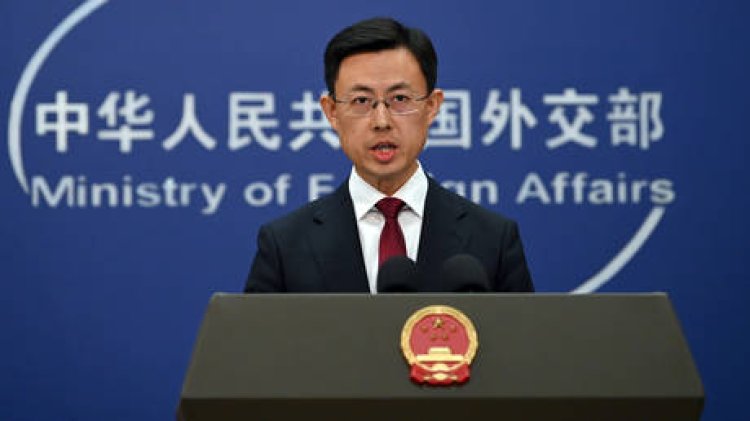Beijing Denies Trump’s Assertion of a Phone Call with Xi
China and the US are currently not in any discussions regarding tariff issues, according to a spokesperson from the Chinese Foreign Ministry. The Foreign Ministry has disputed claims made by US President Donald Trump that he recently had a...

The Foreign Ministry has disputed claims made by US President Donald Trump that he recently had a conversation with President Xi Jinping. During a press briefing in Beijing on Monday, the ministry emphasized that neither party is pursuing a tariff agreement.
In a recent interview with Time magazine, Trump asserted that his administration was in negotiations with China for a tariff agreement and stated that President Xi had contacted him. However, Beijing has consistently denied that any such discussions are taking place, accusing Washington of "misleading the public."
Referring to Xi, Trump stated in the interview, "He’s called. And I don’t think that’s a sign of weakness on his behalf." The American president did not specify when the call occurred or what was discussed.
Foreign Ministry spokesperson Guo Jiakun told reporters, “As far as I know, there have not been any calls between the two presidents recently. I would like to reiterate that China and the US have not conducted consultations or negotiations on the tariffs issue.”
Media reports indicate that the Trump administration has signaled a willingness to consider lowering tariffs on certain Chinese imports, contingent upon talks with Beijing.
China has firmly maintained its stance on tariffs, insisting that all "unilateral" penalties imposed by the US must be lifted in order to resolve any trade disputes.
Since last week, Trump has repeatedly stated that his administration is engaged in trade talks with Chinese officials, each time being met with firm denials from Beijing.
Earlier this month, Trump implemented significant tariffs, including a 145% levy on Chinese imports, during an event he described as "Liberation Day." This move is part of a broader campaign targeting over 90 countries to address what Trump has characterized as unfair trade practices. While most new tariffs have been postponed for 90 days with a baseline 10% tariff still in effect, China was excluded from this extension. In retaliation, Beijing has implemented 125% tariffs on US goods and introduced restrictions on critical exports.
The ongoing tensions between the two largest economies in the world have contributed to volatility in global markets. On Tuesday, the International Monetary Fund downgraded its global growth forecast, citing trade uncertainty as a significant factor negatively impacting economic output.
In its World Economic Outlook, the IMF projects global GDP growth at 2.8% for this year, a decline from 3.3% in 2024. Additionally, it has revised its forecast for US growth in 2025 down to 1.8%, compared to 2.8% last year. Meanwhile, China’s economy is anticipated to slow to 4%, reflecting the efforts to mitigate the effects of US tariffs.
Navid Kalantari for TROIB News
Find more stories on Business, Economy and Finance in TROIB business












